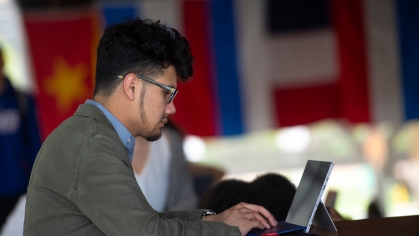Are You Ready for a Behavioral Interview?
How to Prepare for a Behavioral Interview
Review the job description and take note of the skills/qualifications required. It’s likely that the interviewer will ask you questions based on those “competencies.” For example: leadership, problem solving, or teamwork. Think about examples of situations where you have demonstrated those “competencies” and be prepared to discuss them in detail.
- Be specific. Don’t generalize about several situations; give a detailed description of one situation. Prepare examples of situations demonstrating skills such as leadership, teamwork, decision-making, problem solving, and organization/planning.
- Be sure that the outcome reflects positively on you (even if the result itself was not favorable).
- Be honest. Don’t embellish or omit any part of the story.
Typical “Behavioral Interview” Questions
- Give an example of a situation when you dealt with a difficult customer.
- Provide an example that demonstrates your ability to work effectively as part of a team.
- Describe a time when you successfully managed multiple responsibilities.
- Describe a project or situation which demonstrates your ability to analyze and solve problems.
- Give an example that demonstrates your organization skills and attention to detail.
- Describe a time when you had a conflict or difference of opinion with a co-worker.
Behavioral Interview Sample Question/Response
“Tell me about a time when you were on a team and a member wasn’t pulling their weight.”
“I was assigned to a team to build a canoe out of concrete. One of our team members wasn’t showing up for our lab sessions or doing his assignments. I finally met with him in private, explained the frustration of the rest of the team, and asked if there was anything I could do to help. He told me he was preoccupied with another class that he wasn’t passing, so I found someone to help him. Not only was he able to spend more time on our project, but he was grateful to me for helping him. We finished our project on time and got a ‘B+.’”
The interviewer might follow-up with:
- “How did you feel when you confronted this person?”
- “What was your role?”
- “At what point did you take it upon yourself to confront him?”
You can see it is important that you do not make up or embellish information and why you should have a specific description of the situation.

